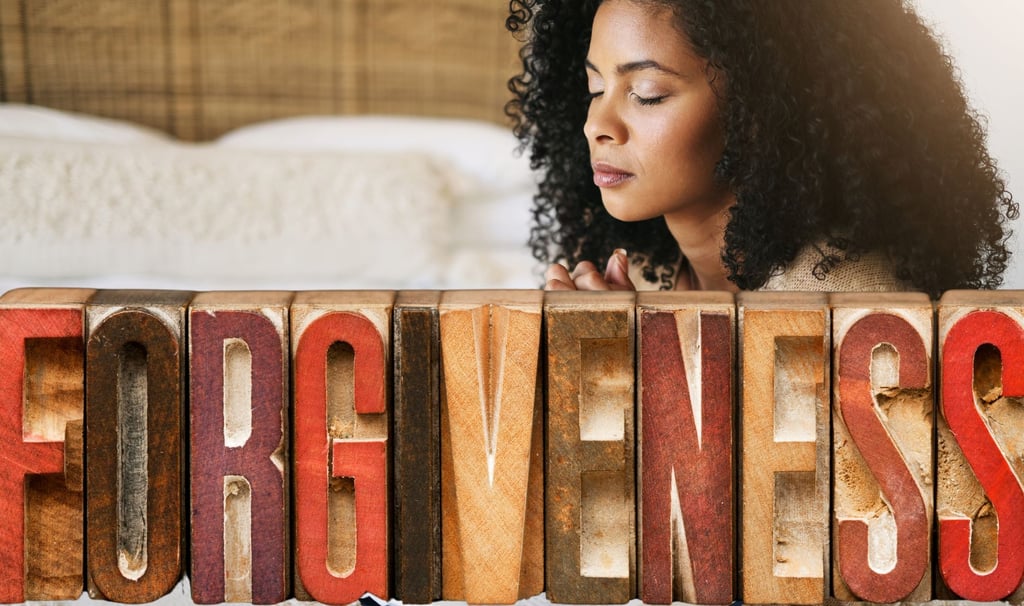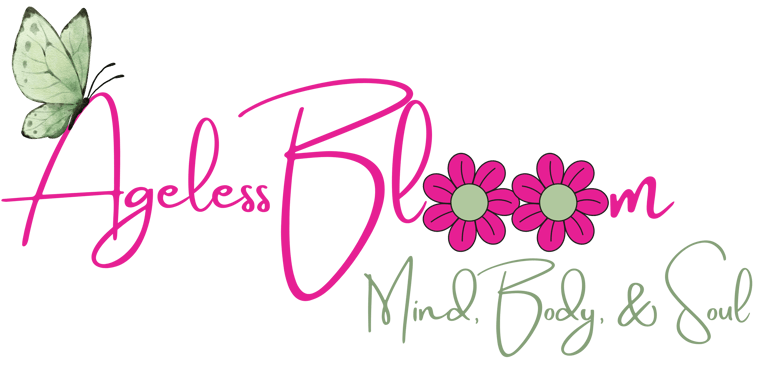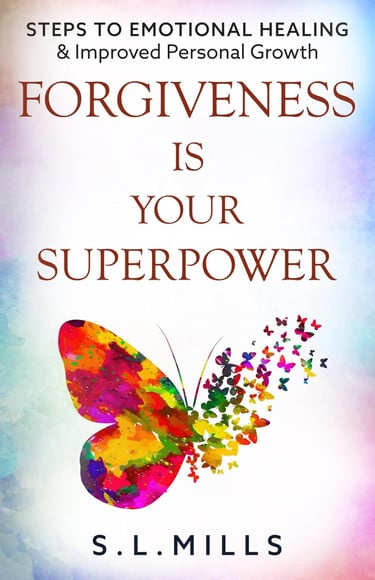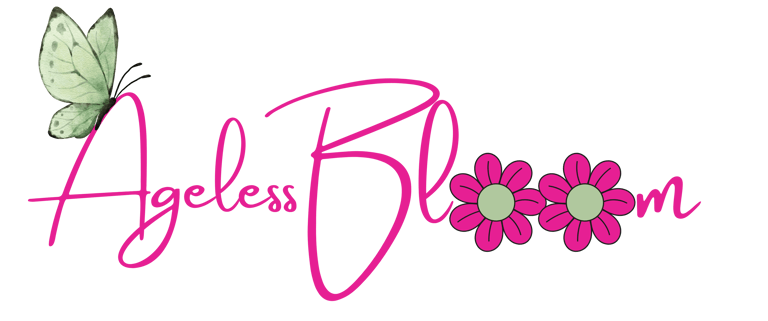How to Forgive and Heal: A Woman's Complete Guide to Emotional Freedom
Learn how letting go of past hurts can lead to emotional freedom, better relationships, and profound personal growth. With practical exercises, science-backed insights, and step-by-step guidance, this article shows you how to release emotional baggage and embrace a lighter, more fulfilling life.
SELF CARE AND PERSONAL GROWTH
Shari Smith
12/26/2024
As an Amazon affiliate, we earn commissions at no extra cost to you if you click our links and make a purchase.


Have you ever felt weighed down by anger, hurt, or resentment? I get it - letting go of past wounds isn't easy. But here's the thing: forgiveness isn't just about making peace with others; it's about freeing yourself.
As women, we often carry emotional burdens that hold us back from living our best lives. In this guide, we'll explore how forgiveness can be your pathway to personal growth, inner peace, and emotional freedom.
Struggling with past hurts? In this in-depth guide, we explore how forgiveness can be your gateway to personal transformation and emotional freedom. Perfect for women who want to break free from the weight of resentment, this article goes beyond simple advice to provide actionable steps, scientific insights, and practical exercises for genuine healing.
You'll discover:
The surprising science behind forgiveness and its impact on your health
Step-by-step guidance for releasing emotional pain
Practical exercises to build your forgiveness muscles
Expert strategies for handling different types of hurt
Real solutions for common forgiveness challenges
Whether you're dealing with childhood trauma, relationship betrayals, or workplace conflicts, this guide offers compassionate, practical wisdom for your journey to emotional freedom. Start your path to healing today with this comprehensive exploration of forgiveness and personal growth.
Understanding True Forgiveness: More Than Just Saying "It's OK"
Let's get real for a minute - forgiveness isn't about excusing bad behavior or pretending everything's fine. It's not even about reconciliation (though that can be a bonus). True forgiveness is an internal process of releasing the grip that hurt and anger have on your heart and mind.
Think of forgiveness like decluttering your emotional house. Just as you wouldn't keep broken items that serve no purpose, holding onto resentment only takes up valuable space in your heart. When you forgive, you're not doing it for the other person - you're doing it for yourself.
The Science Behind Forgiveness: What Happens in Your Body and Mind
When you hold onto grudges, your body literally responds with stress hormones. Research shows that unforgiveness can lead to:
Elevated blood pressure and heart rate
Increased muscle tension and physical pain
Compromised immune system function
Higher levels of anxiety and depression
Disrupted sleep patterns and chronic fatigue
On the flip side, practicing forgiveness triggers the release of feel-good hormones like oxytocin and serotonin. It's like giving your body and mind a reset button, allowing your natural healing processes to kick in.
The Hidden Costs of Not Forgiving
Before we dive into how to forgive, let's talk about what happens when we don't. Holding onto resentment is like drinking poison and expecting the other person to get sick. Here's what unforgiveness really costs you:
Emotional Toll
Constant mental replay of painful events
Difficulty trusting and forming new relationships
Emotional exhaustion from carrying anger
Reduced capacity for joy and positive experiences
Physical Impact
Chronic stress-related health issues
Weakened immune system
Sleep disorders
Increased risk of heart problems
Personal Growth Barriers
Limited ability to move forward in life
Decreased self-confidence
Blocked creativity and inspiration
Stunted emotional development
The Transformative Benefits of Forgiveness
Now for the good stuff - what happens when you choose to forgive? The benefits are profound and far-reaching:
Emotional Freedom
Release from the prison of bitterness
Increased emotional resilience
Greater capacity for joy and happiness
Improved self-esteem and confidence
Better Relationships
Enhanced ability to trust others
Stronger connections with family and friends
More authentic and vulnerable interactions
Improved communication skills
Personal Growth
Increased emotional intelligence
Better understanding of yourself and others
Enhanced problem-solving abilities
Greater wisdom and maturity
The Journey to Forgiveness: A Step-by-Step Guide
Forgiveness is a process, not a one-time event. Here's how to begin your journey:
1. Acknowledge Your Pain
First, give yourself permission to feel hurt. Your feelings are valid, and recognizing them is the first step toward healing. Write them down, talk to a trusted friend, or work with a therapist to process your emotions.
2. Choose to Forgive
Make a conscious decision to work toward forgiveness. This doesn't mean you're ready to forgive right now - it just means you're willing to start the journey.
3. Reframe the Situation
Try to understand the other person's perspective. This doesn't excuse their actions but can help you see the bigger picture. Ask yourself:
What might have been going on in their life?
What fears or insecurities might have driven their behavior?
How might their past experiences have influenced their actions?
4. Release Expectations
Let go of the idea that the other person needs to apologize or change. True forgiveness happens independently of their actions or awareness.
5. Practice Self-Compassion
Be gentle with yourself throughout this process. Some days will be easier than others, and that's okay.
Common Challenges in the Forgiveness Journey
Let's address some hurdles you might face:
Fear of Being Hurt Again
This is a natural concern. Remember: forgiveness doesn't mean you have to put yourself in vulnerable positions. You can forgive someone while maintaining healthy boundaries.
Feeling Like You're Letting Them "Get Away With It"
Forgiveness isn't about justice - it's about your healing. The other person's accountability is separate from your decision to forgive.
The "But You Don't Know What They Did" Syndrome
Yes, some actions seem unforgivable. But holding onto that pain only hurts you more. Forgiveness becomes even more powerful when the hurt is deep.
Practical Exercises for Cultivating Forgiveness
Try these exercises to build your forgiveness muscles:
The Letter Exercise
Write a letter to the person who hurt you (you don't have to send it). Express everything you feel, then write a response from their perspective. Finally, write a letter to yourself about what you learned.
The Mirror Practice
Stand in front of a mirror and practice saying, "I forgive you" - first to yourself, then to others who have hurt you. Notice how your body responds.
The Release Ritual
Create a personal ritual for letting go. This might involve:
Burning a letter you've written
Releasing a balloon (environmentally friendly, please!)
Planting a seed to symbolize new growth
Creating art that represents your journey
FAQs About Forgiveness
Q: Does forgiveness mean forgetting?
No. Forgiveness is about releasing the emotional charge while keeping the wisdom gained from the experience.
Q: How long should forgiveness take?
There's no timeline for forgiveness. It's a personal journey that moves at its own pace.
Q: What if I'm not ready to forgive?
That's completely okay. Start by being willing to consider forgiveness as a possibility for the future.
Q: Can I forgive someone but still not want them in my life?
Absolutely! Forgiveness and boundaries are separate things. You can forgive someone while choosing not to have a relationship with them.
Special Considerations for Different Types of Hurt
Childhood Trauma
Forgiving parents or caregivers can be especially challenging. Take extra time and possibly seek professional support for this deep work.
Relationship Betrayals
Intimate betrayals cut deep. Focus on forgiving yourself first if you're dealing with shame or self-blame.
Workplace Injuries
Professional hurt can affect your career confidence. Work on separating the incident from your self-worth.
Creating a Forgiveness-Friendly Future
As you become more practiced at forgiveness, you'll notice changes in how you handle new hurts:
Prevention Strategies
Setting clear boundaries from the start
Communicating expectations effectively
Building emotional resilience
Maintenance Practices
Regular emotional check-ins with yourself
Journaling about triggers and responses
Meditation or prayer practices
Your New Chapter Begins Now
Forgiveness is one of the most powerful gifts you can give yourself. It's not about condoning what happened or pretending it didn't hurt. It's about choosing your own freedom over the prison of resentment.
Remember, you're not alone on this journey. Every woman who has chosen forgiveness has started exactly where you are - with a decision to try. Take it one day at a time, be patient with yourself, and watch how the weight of unforgiveness gradually lifts from your shoulders.
As you move forward, keep this truth close to your heart: forgiveness isn't weakness - it's courage. It's not giving up - it's moving up. And most importantly, it's not about them - it's about you and your magnificent journey of growth and healing.
Are you ready to begin your forgiveness journey? Start small, start somewhere, but most importantly, start today. Your future self will thank you for it.

Forgiveness Is Your Superpower: Steps To Emotional Healing & Improved Personal Growth
Imagine unlocking a hidden superpower within you that sets you free from resentment and pain, even if you think you could never forgive those who hurt you.






